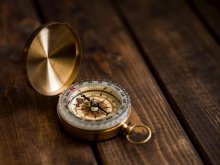371 Bloor Street West
Toronto, ON M5S 2R7 get directions
Toronto, ON M5S 2R7 get directions


The Nobel Prize in Physiology or Medicine was announced this week. It was awarded jointly to Dr. Drew Weissman and Dr. Katalin Karikó for their invention of the modified mRNA technology used in Pfizer-BioNTech and Moderna’s COVID-19 vaccines. If you’ve been following the story, you’ll know that Dr. Karikó’s experience at the University of Pennsylvania was vastly different from that of her colleague Dr. Weissman.
While we know there is always more than one side to every story, let’s just say that the story currently running in the media about Penn’s treatment of Dr. Karikó does not shine a favourable light on the University. It is accused of hypocrisy for suggesting that it supported the development of a scientific accomplishment it once actively discouraged. In 1995, the University demoted Dr. Karikó, telling her she wasn’t “faculty-worthy.” It cut her salary, a move Dr. Karikó saw as an effort to push her out, and laughed when she announced she was leaving for a company called BioNTech. All this happened in the same week she received a cancer diagnosis and her husband was unable to return from Hungary because of Green Card issues.
This part of Dr. Karikó’s story, albeit important, isn’t the one that touched me most. It was an article written by Dr. Karikó’s daughter, Susan Francia, a two-time Olympic Gold medal winner in rowing who penned a tribute to her Nobel Laureate mother. To quote Susan, “...perseverance is pretty much my family's life in a nutshell ‒ defying the odds, trying to keep forging ahead, even when all sorts of challenges are being thrown your way.” She recalls a Hungarian song her mother used to sing to her as a child when she was feeling discouraged. The song’s message taught Susan that if something precious is handed to you, “it's just another thing ‒ but if it's something you fought for, it means that much more.” Reading Susan’s moving tribute, I thought about what it was like for her, growing up in a household with a brilliant mother whose potential success was impeded time and time again. I thought about the lessons Susan learned from watching her mother persevere through hardship, discrimination and likely multiple false starts in her research as she fought for the thing that would mean so much more.
Whether we realize it or not, we are role models to the children around us, whether as parents, family members, teachers or coaches. They watch us every day and learn how to navigate life from us. Through our actions, perhaps more so than our words, they learn how to agree and how to disagree, how to care for others and how to care for themselves, when to rest and when to push on. We teach them how to win and how to lose, and perhaps most importantly, we teach them through our own actions what to do when loss feels immense but we need to find a way to recover, reset and try again.
Being a role model is a privilege and a responsibility. As someone who is surrounded by watchful children every day, this thought is never far from my mind. I am immensely grateful for the opportunity to work with our students at UTS and also appreciative that I get to do this work alongside caring staff and faculty, and also our dedicated parents. I hope that we can together model for each other and for our children what it means to work hard, care deeply for others and to fight for the precious things we each hold dear in our lives.
Dr. Leanne Foster
Principal, UTS
Read more of Dr. Foster's Blog
#utsstories
#fosteringbrilliance
